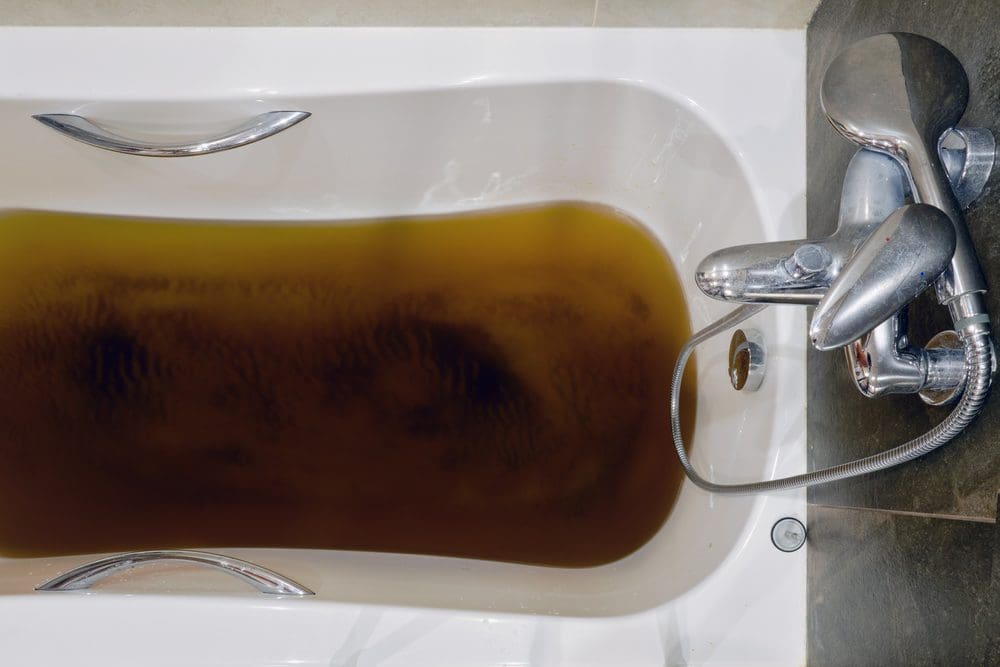Unveiling the Causes of Drainage in the Bathtub
Unveiling the Causes of Drainage in the Bathtub
Blog Article
Are you interested in information and facts about Why is There Sewage Coming Up Through the Bathtub?

Sewage back-up in the tub can be a stressful and unhygienic issue for any kind of property owner. Not only is it inconvenient, yet it also presents significant health dangers and indicates underlying problems with the plumbing system. Comprehending why sewer is showing up with the bath tub is critical for taking suitable activity to deal with the issue successfully.
Intro to the Concern
Understanding the Trouble
When sewer draws back up into the tub, it's a clear indication of an issue with the drain system. The wastewater that should be streaming far from your home is rather discovering its way back right into your home, which can result in considerable damage and health hazards.
Prospective Causes
Numerous variables can add to sewage backup in the bathtub. From clogs in the drain line to issues with the plumbing facilities, recognizing the source is necessary for locating a remedy.
Common Factors for Sewage Backup
Blockages in the Sewage System Line
One of the most usual root causes of sewage backup is a clog in the drain line. This can take place due to the build-up of particles, oil, or foreign objects in the pipes, protecting against proper circulation and triggering sewage to support right into your bathtub.
Tree Origin Intrusion
Tree origins looking for wetness and nutrients can infiltrate sewer lines via tiny splits or joints. Gradually, these roots can grow and increase, causing considerable damages to the pipes and bring about sewer backup problems.
Aging Facilities
Older homes might have outdated plumbing systems that are much more prone to rust, splits, and wear and tear. As pipelines age, they come to be much more susceptible to leakages and clogs, raising the chance of sewage back-up occurrences.
Heavy Rainfall or Flooding
During durations of heavy rainfall or flooding, the drain system may come to be overwhelmed with excess water, triggering backups and overflows. This can cause sewer backing up into tubs and other fixtures inside the home.
Health Risks Associated with Sewage Backup
Contamination of Water System
Sewage back-up can pollute the supply of water in your home, posturing a major health threat to you and your household. Direct exposure to contaminated water can bring about intestinal problems, skin infections, and other ailments.
Spread of Disease
Sewer includes dangerous bacteria, viruses, and bloodsuckers that can cause a variety of diseases, including liver disease, cholera, and gastroenteritis. Coming into contact with sewage or polluted surfaces puts you at risk of infection.
Mold and mildew Growth
Moisture from sewer back-up can produce excellent problems for mold growth in your home. Mold spores can aggravate respiratory system troubles and trigger allergies in sensitive individuals, making prompt cleaning essential.
Indications of Sewage Backup
Foul Odors
Unpleasant odors rising from drains or components, especially in the bathroom, may suggest sewer back-up issues. These smells are frequently solid and persistent, indicating an issue that calls for instant focus.
Slow Draining Fixtures
Bath tubs, sinks, and bathrooms that drain pipes gradually or not at all could be experiencing sewage backup. If numerous fixtures are affected concurrently, it's likely that the concern originates from a common factor, such as the major drain line.
Gurgling Noises
Unusual gurgling or bubbling noises coming from drains pipes when water is running in other places in the house are indicative of air entraped in the plumbing system. This air build-up can result from sewer backup and ought to be investigated immediately.
Immediate Actions to Take
Shutting Off Water
In the event of sewage backup, it's essential to turn off the water system to stop further contamination and damage. Situate the primary water shutoff valve in your home and closed it off till the issue can be solved.
Speaking To an Expert Plumber
Dealing with sewer backup is not a do it yourself task. Call an accredited plumber with experience in dealing with sewage-related concerns to evaluate the circumstance and execute required repair services or cleanups.
Preventing Contact with Polluted Water
Till the sewer back-up is dealt with, prevent contact with infected water to stop the spread of bacteria and pathogens. Use protective gear if you should remain in the affected area and wash your hands completely afterward.
Preventive Measures
Regular Maintenance of Sewer Lines
Schedule routine evaluations and upkeep of your sewer lines to identify and attend to possible issues before they intensify right into major problems. This can include cleaning out particles, inspecting for tree origin invasion, and repairing any kind of broken pipes.
Mounting Backwater Shutoffs
Take into consideration mounting backwater shutoffs in your plumbing system to avoid sewer from flowing back right into your home during periods of heavy rainfall or flooding. These shutoffs automatically close when water starts backing up, protecting your property from contamination.
Appropriate Disposal of Household Waste
Prevent purging anything other than toilet tissue and human waste down the commode to stop clogs and blockages in the sewage system line. Dispose of grease, oil, and other home chemicals appropriately to lessen the threat of plumbing troubles.
Cleaning Up After Sewage Backup
Disinfection Procedures
Thoroughly disinfect and sanitize affected areas after sewage back-up to remove dangerous germs and avoid mold development. Usage proper cleansing items and protective gear to make sure risk-free and effective cleanup.
Reconstruction of Influenced Areas
Fix any type of damages to flooring, wall surfaces, or fixtures caused by sewer backup. Relying on the level of the damage, you might need to change carpeting, drywall, or other products to restore your home to its pre-loss problem.
Sewage Coming Up Through the Bathtub?
Understanding the Plumbing System:
To understand why sewage is coming up through your bathtub, it is essential to have a basic understanding of the plumbing system. The plumbing system is a complex network of pipes, valves, fixtures, and drains that work together to provide clean water to your home and remove waste and sewage. The system consists of two parts: the supply system and the drainage system.
The supply system brings clean water to your home, while the drainage system removes wastewater from your sinks, toilets, showers, and bathtubs. The drainage system is connected to the main sewer line, which carries the wastewater to the municipal sewage treatment plant or septic tank.
Causes of Sewage Coming Up Through the Bathtub:
Sewage coming up through the bathtub can be caused by various factors. Some of the most common causes are:
Clogged Drain Pipes:
One of the most common reasons for sewage coming up through the bathtub is a clogged drain pipe. Over time, debris, hair, soap scum, and other foreign objects can accumulate in the drain pipes, leading to a blockage. This can cause the wastewater to back up and come out of the bathtub.
Main Sewer Line Blockage:
Another reason for sewage coming up through the bathtub is a blockage in the main sewer line. The main sewer line connects your home’s drainage system to the municipal sewer system. If the main sewer line gets clogged due to tree roots, grease buildup, or other obstructions, it can cause sewage to back up into your home’s plumbing fixtures, including the bathtub.
Sewage Backup:
Sewage backup is another common cause of sewage coming up through the bathtub. Sewage backup occurs when there is a problem with the municipal sewer system, such as heavy rainfall, flooding, or a malfunctioning pump. When this happens, sewage can flow back into your home’s drainage system and cause sewage backup in your plumbing fixtures, including the bathtub.
Broken or Damaged Pipes:
Finally, broken or damaged pipes can also cause sewage to come up through the bathtub. Over time, pipes can deteriorate due to age, corrosion, or external factors such as shifting soil. When pipes break or crack, wastewater can leak out and cause sewage backup in your plumbing fixtures.
Signs of Sewage Coming Up Through the Bathtub:
Some of the signs that sewage is coming up through your bathtub include:
Foul odor: If you notice a strong, unpleasant odor coming from your bathtub drain, it could be a sign of sewage backup. The smell is caused by the buildup of organic waste in the pipes. Slow drainage: If your bathtub drains slowly or not at all, it could be a sign of a clogged drain pipe or a more severe problem with the main sewer line. Gurgling sounds: If you hear gurgling sounds coming from your bathtub drain or other plumbing fixtures, it could indicate that air is trapped in the pipes due to a blockage. Prevention Measures:
The best way to prevent sewage from coming up through the bathtub is to take preventative measures. Here are some practical tips:
Regular Drain Cleaning:
Regular drain cleaning can help prevent clogs and keep your pipes in good condition. You can use a plunger, drain snake, or enzymatic drain cleaner to remove any buildup of hair, soap scum, or other debris in your bathtub drain.
Proper Waste Disposal:
Improper waste disposal can also contribute to sewage backup. Avoid flushing non-biodegradable items, such as paper towels, feminine hygiene products, or wipes down the toilet. Also, be mindful of what you pour down the drain, such as grease, oil, or coffee grounds, as they can cause clogs.
Professional Plumbing Maintenance:
Regular plumbing maintenance can help prevent plumbing emergencies, such as sewage backup. A professional plumber can inspect your pipes, identify any potential issues, and perform preventative measures, such as hydro jetting, to clean your pipes.
Hydro Jetting:
Hydro jetting is a powerful method that uses high-pressure water to clean the pipes thoroughly. It can remove even the most stubborn clogs and prevent future blockages.

As a fervent person who reads about Water Coming up Bathtub Drain, I imagined sharing that article was appropriate. Are you aware of another individual who is excited by the topic? Please feel free to promote it. Many thanks for taking the time to read it.
Click Here
Report this page